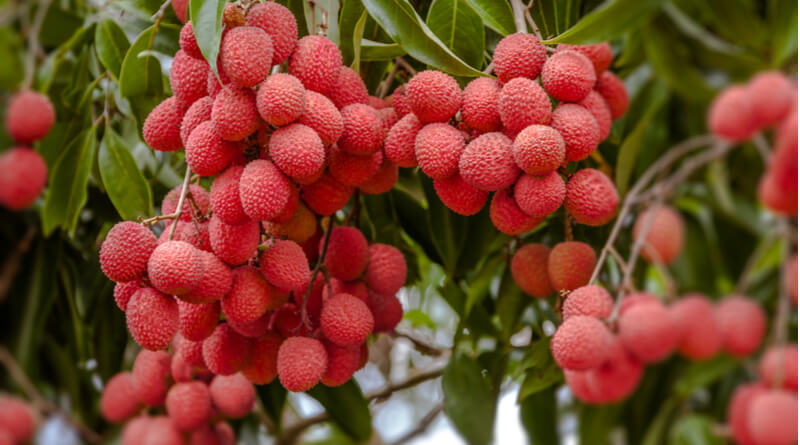If you’re a fan of tropical fruits or fruit that tastes like candy, then you’re definitely probably a fan of lychee. The lychee fruit, also known as lichee or litchi is a small, grape sized fruit from the soapberry family. That makes it a relative of the rambutan and longan fruits, which also taste a lot like candy.
Soapberry fruits are eaten specifically for their sweet and flowery flavors. They’re usually eaten fresh, but they’re also used pretty commonly as key ingredients in desserts such as, sherbert, ice cream, juice, jellies, and wine. But don’t let the lychee’s yumminess fool you; lychee fruit is filled with health benefits. It is one of the few desserts that lets you live out the fantasy of having your cake and eating it too.
Lychee Nutrition Facts
The majority of lychee is made up of water and carbohydrates; that’s about 82% and 16.5% of the fruit. The remaining 1.5% is al nutrients. But that 1.5% adds up -a 100 gram serving of fresh lychees contains a pretty decent amount of vitamins and minerals:
Vitamin C: Lychee’s most abundant nutrient is vitamin C. A singular lychee contains close to 9% of the RDI for vitamin C.
Copper: Lychee fruit is a great natural source of copper. Copper is an important mineral for your health as a copper deficiency can lead to adverse health effects of the heart.
Potassium: Potassium is one of those essential minerals that you absolutely cannot do without. It helps to build strong bones, regulate your hydration, and even improves your heart health.
Epicatechin: An antioxidant flavonoid that reduces your risk of developing cancer, diabetes, and heart disease.
Rutin: An antioxidant flavonoid that protects your body against chronic diseases like, cancer, heart diseases, and diabetes.








